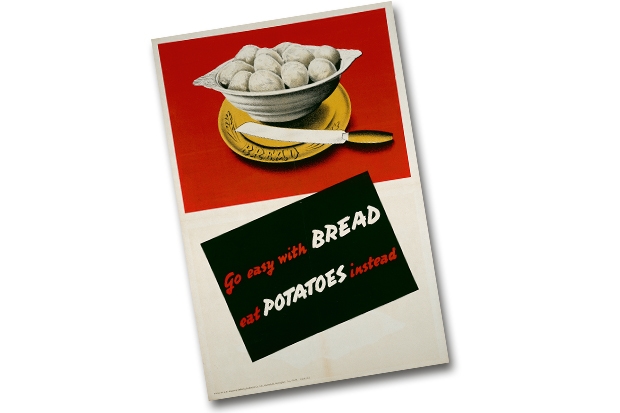In wartime the housekeeping is a nightmare. While fighting Napoleon in Spain the Duke of Wellington sent an infuriated letter to the government in Whitehall. He complained that they had asked him to account for a petty cash deficit of one shilling and ninepence, and a ‘hideous confusion as to the number of jars of raspberry jam issued to one cavalry regiment during a sandstorm…’.
The Duke, more concerned with training soldiers to fight, would not have got on too well with Lord Woolton, the British government’s Minister of Food in the second world war, whose office had the most onerous catering job in history. Woolton, born Fred Marquis in 1883 to working-class parents and raised in Salford, Manchester, was appointed by Neville Chamberlain in April 1940 to oversee, purchase and control distribution of food for every British man, woman and child — 41 million people. He also had oversight of the supply to the then British colonies.
Woolton, who had been ennobled as a successful retailer before the war, admitted he was apprehensive on taking the job. Yet it was not so much duty as can-do that saw this frugal, health-conscious and undeniably brilliant businessman give up his retailing interests and become one of the leading ‘generals’ on the Home Front.
While reading William Sitwell’s Eggs or Anarchy I confess to being amazed that Woolton’s story has never been examined in any detail before. We know pretty much all there is to know about Winston Churchill; the military leaders, and their battles have been picked over time and again — but Woolton’s extraordinary feat has been underplayed, even neglected.
With the help of new access to Woolton’s diaries and those of his wife Maud, Sitwell recounts the many trials and frustrations encountered by the Minister of Food, but also his successes. His office endured with bated breath the wait for the shipping convoys that would bring food from overseas. They worked through the night to locate stockpiles when a boat was torpedoed, taking with it the nation’s entire supply of bacon for weeks to come. Woolton knew he could remove luxuries like bananas from the ration, but was careful not to deny the British their bacon and eggs. It was eggs — or anarchy.
Churchill hovers as Woolton’s nemesis, understanding that people win wars and anxious that his minister would rile them. But Woolton’s powers of persuasion were great. He knew how to appeal directly to women — the main food providers — with posters and broadcasts combining practical messages with patriotic zeal. He also launched a recipe, ‘Woolton Pie’, a gunge of root vegetables covered in a wholemeal crust. When Churchill was offered it, he pushed it away demanding beef. Woolton was in the dining room to receive the snub.
Woolton had no fear of the bigwig farming unions, yet respected them, and he liked to hoodwink Americans into donating before they even entered the war, famously prodding for ‘ships not sympathy’.
Woolton knew how to make deals. He was a businessman not a politician, and he cared not a jot if he made a name for himself, only that the Ministry’s job could be done. It helped that he was also an honest businessman, and could be trusted. If he chopped a third off the meat ration, the hungry British people tolerated it — only just. Even the civil servants did his bidding. He had to endure, however, vicious negativity from the press, blaming him personally for shortages and regularly calling for his resignation.
Eggs or Anarchy meticulously completes the backstory of the war. In this absorbing book Sitwell proves Woolton’s genuine intentions, absolves him for his tough line and also presents a portrait of a man whose style and approach to problems is still highly instructive. It is often said that generally the British were never healthier than in the war years. How we need a Woolton now.






Comments